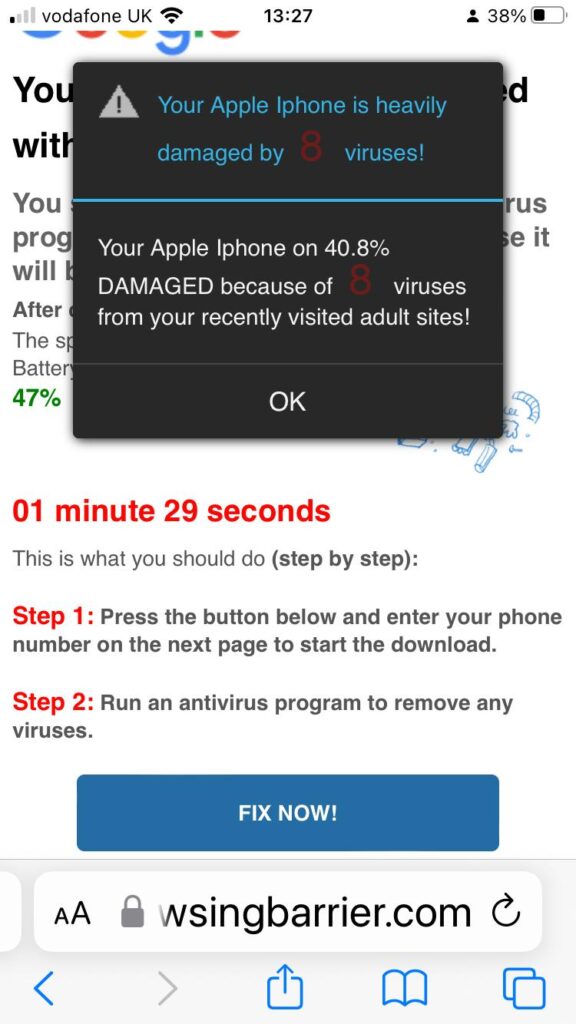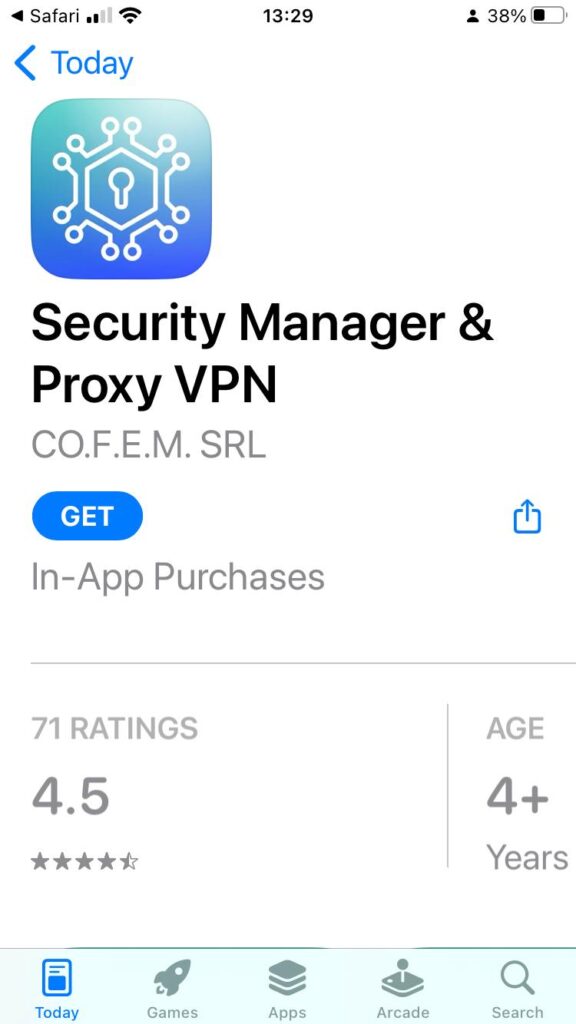“Your iPhone is 40.8% Damaged!” – And Other Fairy Tales From the Internet
You’re minding your own business, maybe googling something innocent like “how to cook pasta” or, let’s be honest, clicking an article with a headline like “10 Celebs Who Aged Badly.” Suddenly bam! — your screen flashes up a very official-sounding message:

“Your Apple iPhone is heavily damaged by 8 viruses from your recently visited adult sites!”
Okay, first of all, rude. Secondly… this is 100% fake.
This kind of scareware is designed to freak you out. It looks like a system message, throws in some fake urgency with a countdown timer, and says your phone is 40.8% damaged (why the .8%? For realism, of course).
Tap “OK” and it doesn’t actually scan your phone. Instead, it does what any good scam does — it redirects you to the App Store.
 Now here’s the genius (and sneaky) part: the app you’re being taken to is technically legit. It’s a real app. Apple has approved it. It even has a decent rating (although only by 71 people compare to 10’s of thousands on better VPN apps). But that doesn’t mean it’s worth your time — or money.
Now here’s the genius (and sneaky) part: the app you’re being taken to is technically legit. It’s a real app. Apple has approved it. It even has a decent rating (although only by 71 people compare to 10’s of thousands on better VPN apps). But that doesn’t mean it’s worth your time — or money.
This app does two things:
- Pretends to offer antivirus protection for your iPhone. (Spoiler: iPhones don’t get viruses like that. Apple’s security model doesn’t work the way Windows does.)
- Gives you a VPN. But not just any VPN, one where you’re paying £60 per quarter, and trusting a company you’ve never heard of to hide your browsing. Great idea, right? Give your data to unknown people to anonymise.
So… if the app is real, how do the scammers benefit?
Here’s the twist: it’s not about the app. It’s about the link.
When you were redirected, you were likely sent via a special referral link. These shady marketers earn commission:
- When you download the app: ✅ small win.
- When you subscribe to the £240/year plan: 💰💰💰 major payout.
It’s the same model you see with free games: watch this ad to get a new sword. But in this case, the “ad” is a fake virus alert that weaponises your panic.
But wait, doesn’t this app protect you from fake ads like the one that brought you here?
Nope. Not even slightly, it’s an advert, there’s not actually a virus!
It’s like a security guard who shows up after you’ve been mugged and offers to sell you a flashlight.
TL;DR:
-
iPhones don’t get traditional viruses.
-
VPNs can be useful, but only from reputable providers you choose, not ones shoved in your face after a fake panic attack.
-
These scams rely on panic, referral fees, and your trust in the App Store.
So next time your screen flashes up something scary, just breathe. Don’t click. Close the tab.
If your iPhone was really 40.8% damaged by viruses… Apple would probably let you know. Not some rando webpage with Comic Sans energy.
